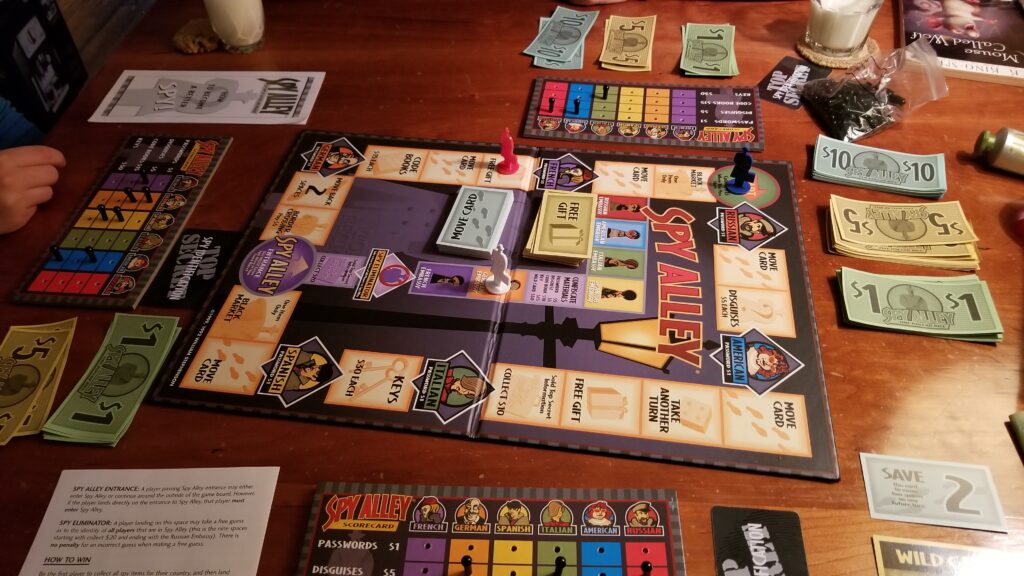
In Spy Alley, everyone is a randomly determined spy working for one of six countries. Each player knows who they are and what country they work for, but it’s a secret from others.
As you roll the die to move your character around the board, you’re trying to buy/collect your own password, disguise, code book and key and get to your embassy. But any player who is too obvious about who they are may get revealed, so to throw other players off the scent of your real identity, you want to get other such items for the spies of other countries as well. The more you blur who you may be, the better your chances of survival.
You can accuse other players of being a specific spy in a couple of circumstances–revealed spies are out of the game and must hand the accuser all of their items and money–but one of those accusation opportunities will backfire if you’re wrong and will get you eliminated from the game instead.
Collect each of the four needed items and land on your country’s embassy, or reveal the true identity of all other players, and you’re the winner.
We’ve played Spy Alley a couple of times now, and this time was more fun than the first, perhaps because we knew how it worked and could enjoy it more, rather than trying to learn it as we played like the first time around.
It’s a bit like Monopoly in terms of rolling the die to move around the board and you can buy items that you land on to help advance in the game, assuming you can afford them. You even get more money as you round the Start space on the board (which is good, because you’ll need it).
It’s also a bit like Clue, in that you’re taking note of the actions (or inactions) of others–collecting evidence, of a sort—in order to try to surmise whether or not you’re confident enough to accuse someone.
It’s not for players who are too young (there is a Jr. version of the game available), but once your kiddos can get a grip on the concept of tactics and observation and deception in the game and are all right with not winning every time–both games have been close to any player winning when someone just nudged out the others, which is a testament to its being well-balanced–they’re good to go.
Good fun for the whole family.